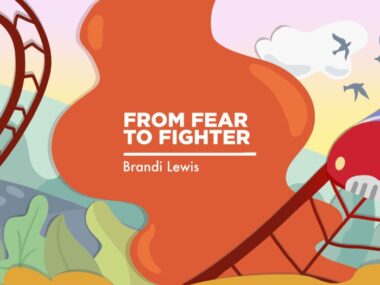In sickness and in health: Dealing with chronic illness in marriage
3 strategies that have helped this couple maintain a healthy relationship
Written by |

After seven years of dating, my loving husband, John, and I got married on Oct. 10, 2020. It was one of the best days of our lives, spent with family and friends as we entered this new phase together. We’d been told by those around us, along with movies and TV shows, that marriage was difficult, but we’ve had an extra obstacle to navigate in our relationship: my health.
While we were planning our wedding in 2019, I was diagnosed with paroxysmal nocturnal hemoglobinuria (PNH). We’ve always done our best to find humor in life, so once we’d accepted my condition, we laughed about how we’d vowed “in sickness and in health” before even getting to the altar.
To maintain a happy and healthy marriage while dealing with my chronic illness, we’ve prioritized three concepts that have helped us flourish during our time together.
1. Education
Learning about PNH was complicated for us. In the weeks following my diagnosis, my brain couldn’t handle the inner workings of the disease. John, along with my mother, took the lead on research, which removed the weight from my shoulders. They educated themselves about terminology and treatment options, and connected with other patients via social media.
I’ll never forget John telling me in those early days, “Don’t worry about the specifics, and don’t search for details about PNH on the internet. Just focus on feeling better, and I’ll handle the research.” I will forever be grateful to him for taking on that burden for me.
John quickly learned about PNH, and when I was ready, he taught me what he knew. Together, we discussed how we’d explain PNH to others, what lab work code abbreviations meant, and how to interpret my test results. We were on the same page in our understanding of PNH, which allowed us to adjust our relationship around the diagnosis.
2. Code words
As John and I fine-tuned our lifestyles to accommodate PNH, we acquired tools that became staples in our relationship and, later, in our marriage. The biggest one was using code words to explain how I felt.
At times my symptoms were so overwhelming that forming words was difficult, which affected my ability to communicate. Having to utter only a single word — one we’d come up with beforehand — saved me the trouble of going into detail in those moments.
We started with the code word “spoons,” from the well-known spoon theory, a metaphor created by writer Christine Miserandino that uses spoons to represent the amount of energy that people with chronic illness have. I would say “spoons” and shake my head no to show that I had no spoons, and therefore no energy to go into further explanation.
We’ve also used words that incorporated humor and had nothing to do with health terms. One of these code words was “banana,” which would make us giggle to lighten the mood.
The code words were especially helpful because John couldn’t read my mind to know what was happening. When I was having trouble communicating, I didn’t have the energy to explain my symptoms. I also struggled to respond when John attempted to help by offering suggestions. I needed space to relax and calm my mind while I figured out what I needed to feel better.
As time went on, John was able to pick up on cues I didn’t even realize I was giving and assess how I was feeling without me saying anything. Today, we rarely need the code words, but they were extremely useful as we navigated the ropes of PNH.
3. Teamwork
Marriage requires teamwork, but dealing with a chronic illness can result in a partnership that isn’t always 50-50. I can’t promise John that I’ll be able to give my full effort to anything, whether it’s household chores, making plans, or taking care of our child. There are days when my symptoms prevent me from being the team player I want to be, so we often have to discuss the situation and come up with a game plan.
John has been wonderful about helping and stepping up when I need him. We’ve spoken in great detail about how we’re still a team. A 50-50 split may be ideal, but it’s rarely realistic. Even in football, the offense may perform better than the defense on some days, and vice versa. It’s uncommon for all of the players to perform at the same level at all times; still, they succeed or fail together. John and I support each other however we can.
There are also times when I feel great but John is struggling. I always try to keep in mind that even though he doesn’t have PNH, he can have bad days, too. What’s difficult are the days when we’re both struggling to keep up with life’s necessities. In those moments, we do what we can to get through it together.
Note: PNH News is strictly a news and information website about the disease. It does not provide medical advice, diagnosis, or treatment. This content is not intended to be a substitute for professional medical advice, diagnosis, or treatment. Always seek the advice of your physician or other qualified health provider with any questions you may have regarding a medical condition. Never disregard professional medical advice or delay in seeking it because of something you have read on this website. The opinions expressed in this column are not those of PNH News or its parent company, Bionews, and are intended to spark discussion about issues pertaining to paroxysmal nocturnal hemoglobinuria.






Leave a comment
Fill in the required fields to post. Your email address will not be published.